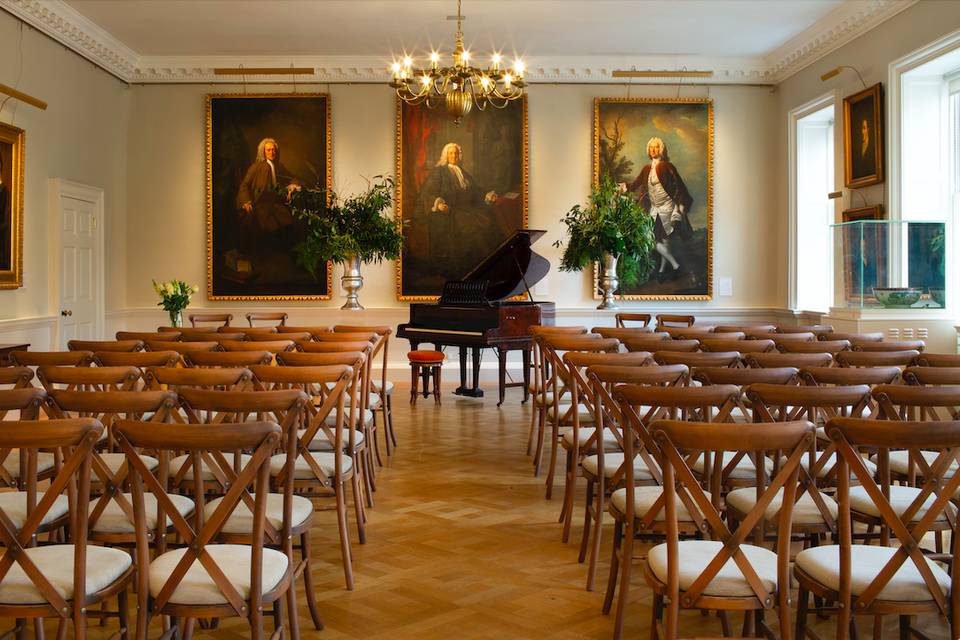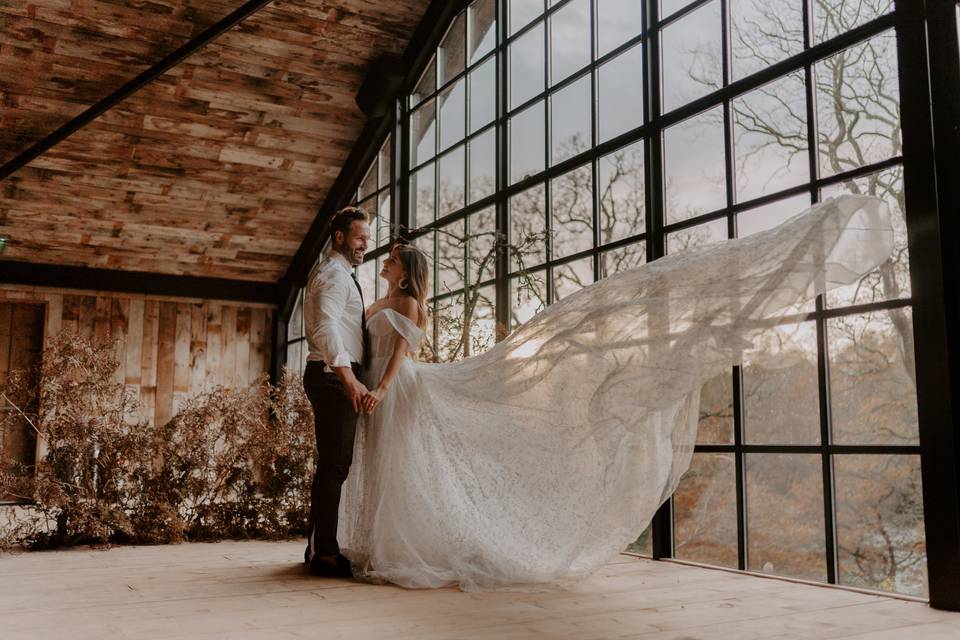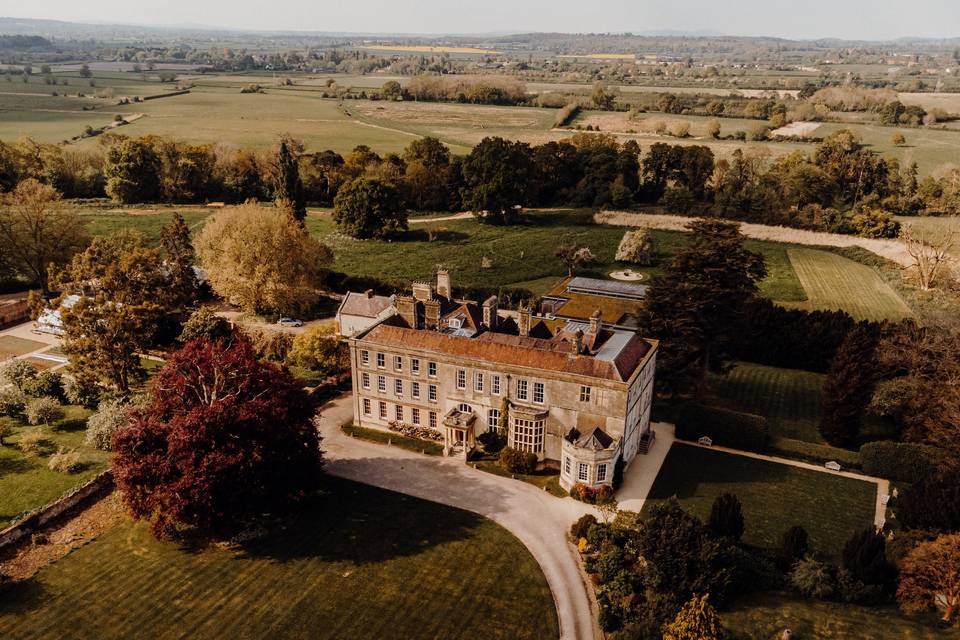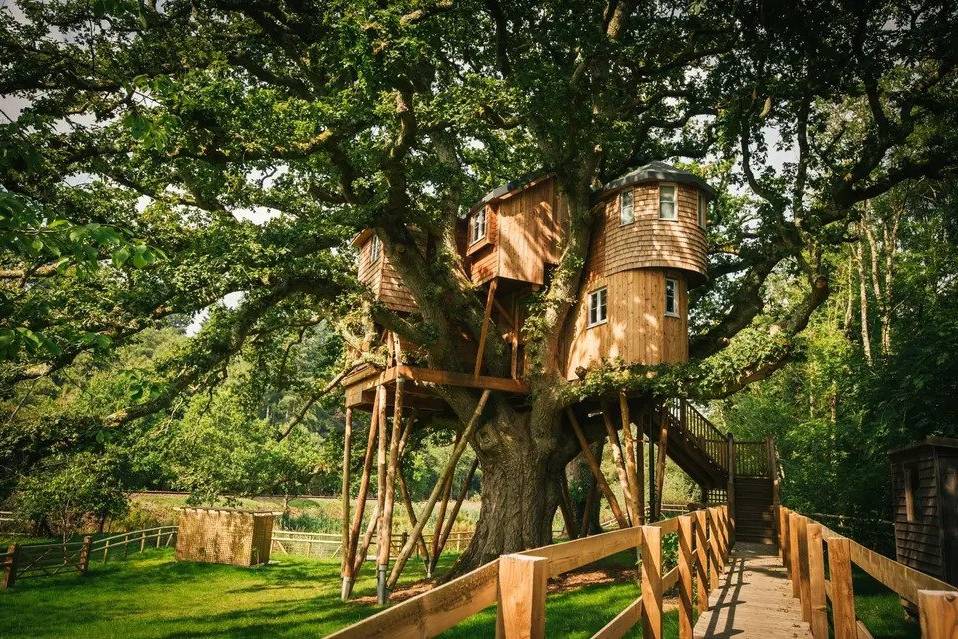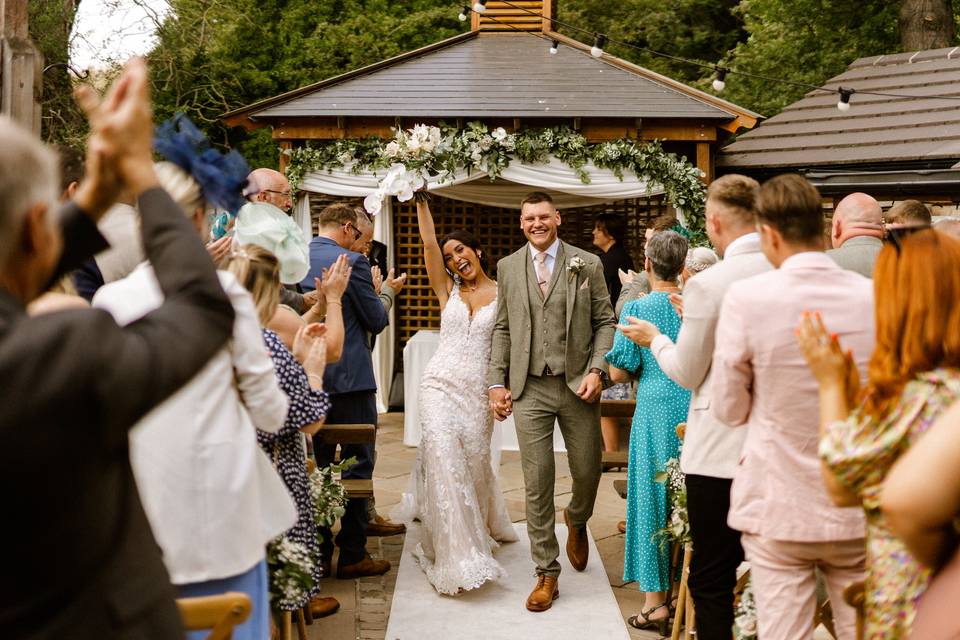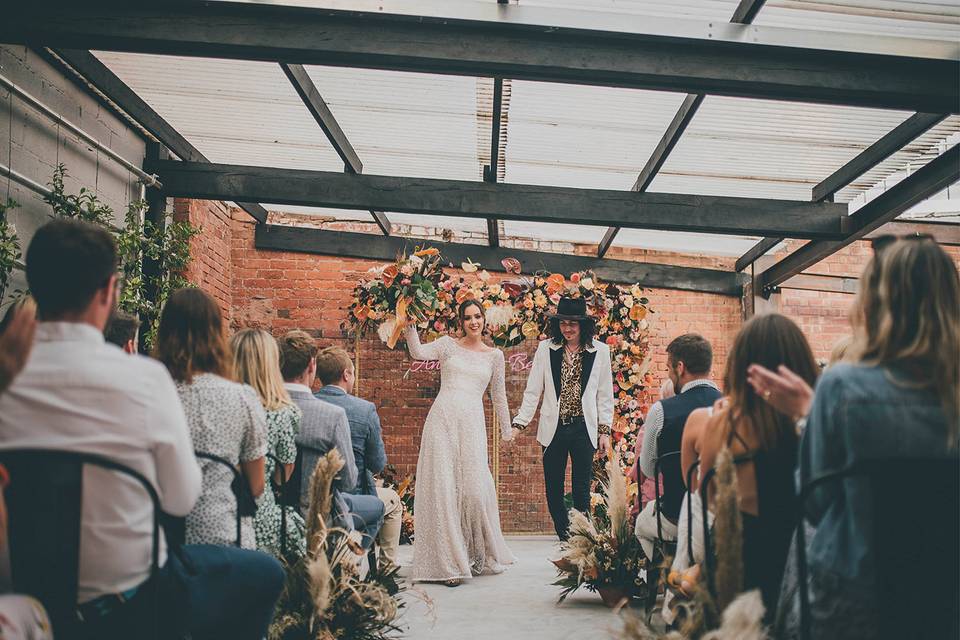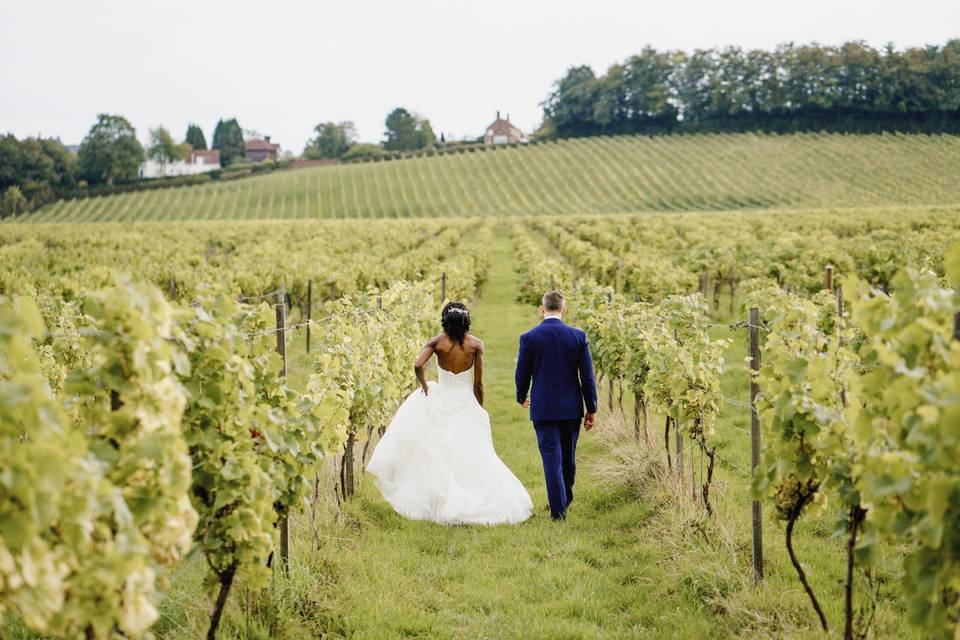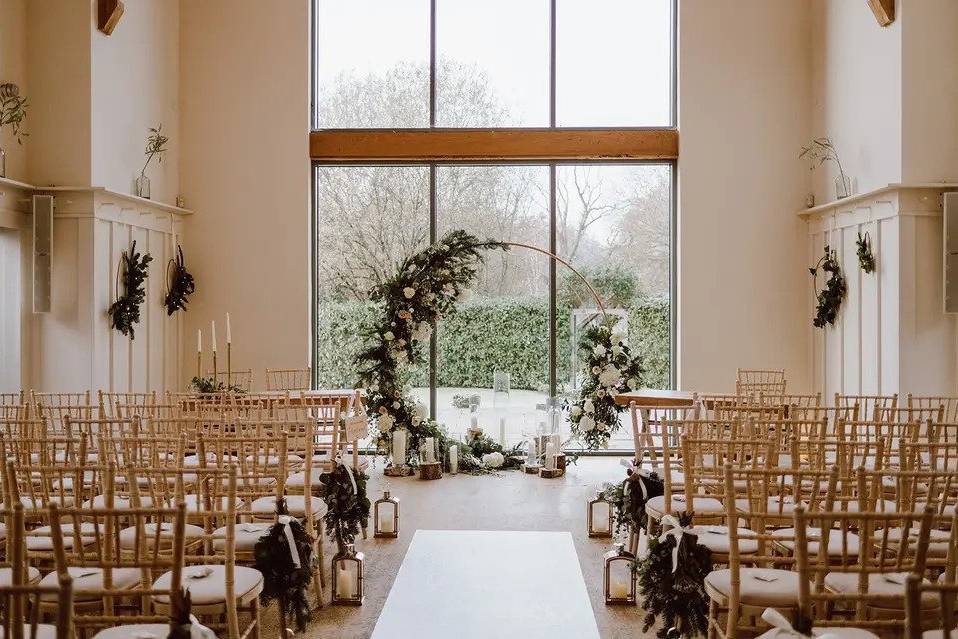Attending a Muslim Wedding? Here’s Everything You Need to Know
Whether you're attending or planning a Muslim ceremony this year, here's what you need to know
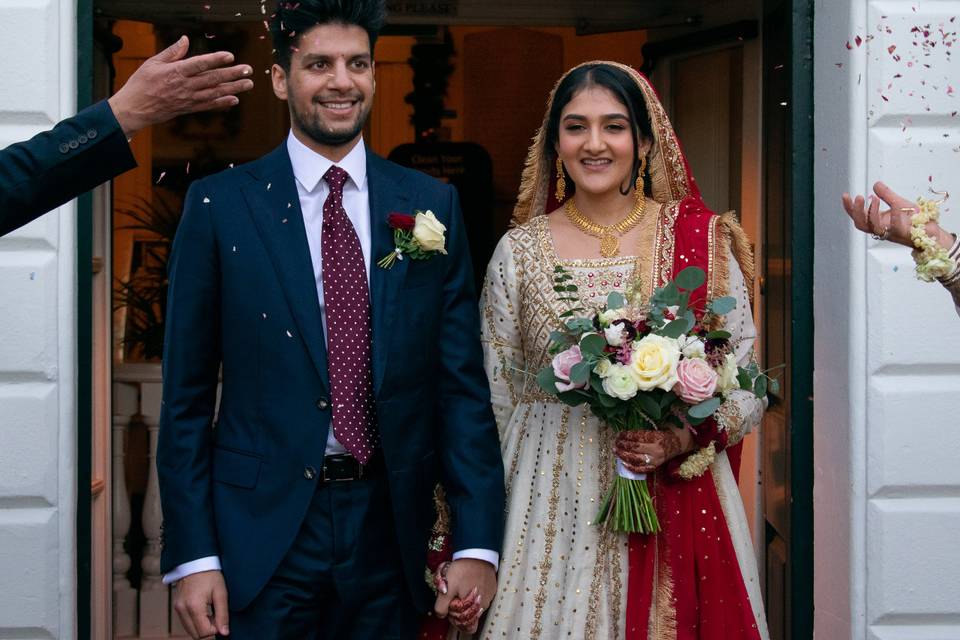
Planning a Muslim wedding can be a beautiful journey, rich with spiritual traditions, family customs, and vibrant celebrations.
From the pre-wedding rituals that bring loved ones together to the Nikah ceremony, where vows are exchanged under the guidance of an Imam, every moment is infused with deep meaning.
If you’re new to these traditions or just want a deeper understanding, we’ve broken down everything you need to know - from customs, finding the best Asian wedding venues, Muslim wedding wear, and decoration to key cultural nuances - to help you celebrate this special day with respect and joy.
To help us cover every last detail, we've enlisted the help of Rohita Pabla, professional Asian wedding planner to share their thoughts and advice for those attending on planning a traditional Muslim marriage.
- How Are Muslim Weddings Unique?
- How Do Muslim Weddings Differ Around the World?
- What Happens at a Muslim Wedding?
- Muslim Wedding Traditions: An Expert's Advice
- Muslim Weddings: Things to Remember
How Are Muslim Weddings Unique?
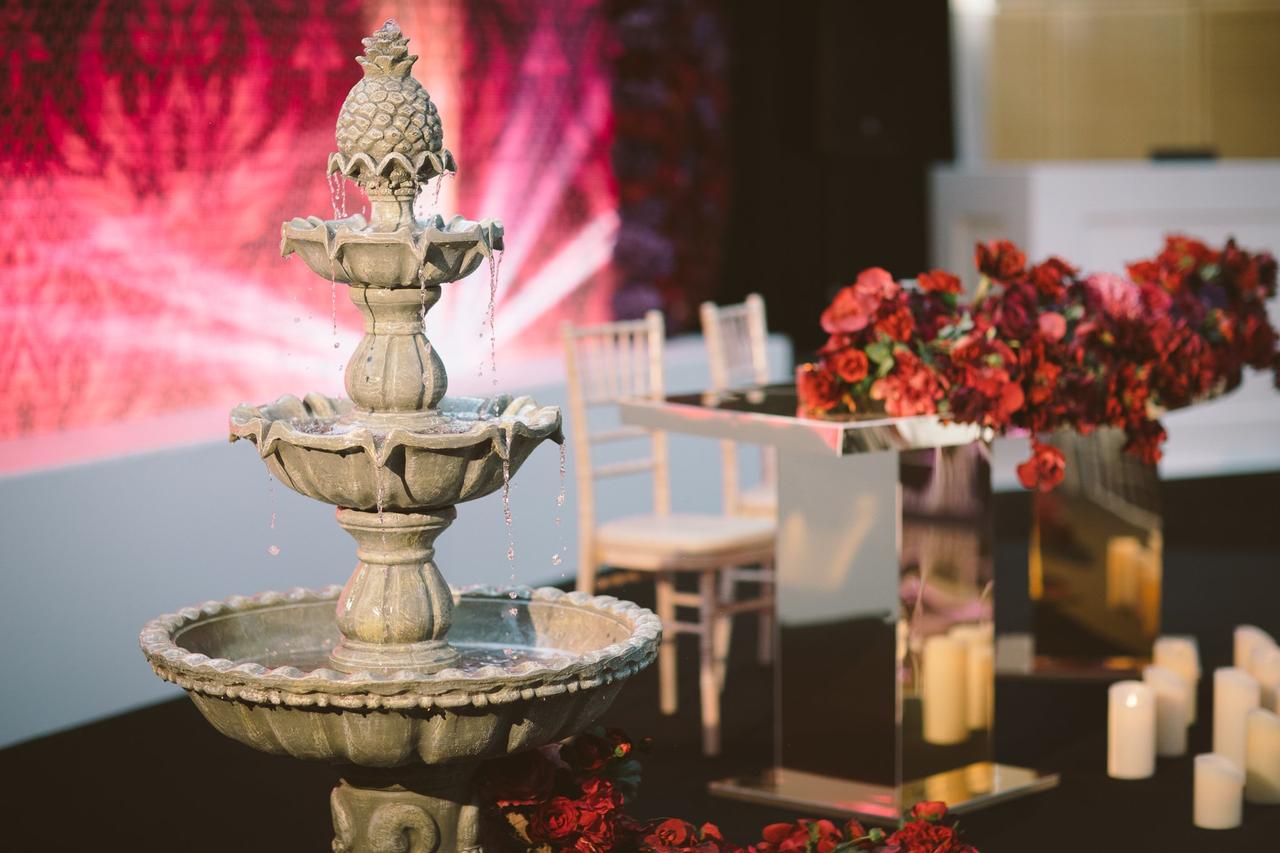
Planning a wedding in Muslim customs offers a uniquely captivating blend of faith, culture, and tradition that sets them apart from other ceremonies. Grounded in Islamic beliefs, these weddings are not only celebrations of love but also acts of devotion, bringing a spiritual element to the festivities.
One of the most defining features is the Nikah, the formal wedding contract, where an Imam guides the couple in exchanging vows, making the marriage official in the eyes of Islam. This contract is often more than just symbolic - it represents a deep commitment to shared values, mutual respect, and partnership within the framework of faith.
A wedding in Muslim traditions also stands out for its emphasis on community and family. Families play significant roles throughout, from Istikhara (seeking divine guidance) to Mehndi (henna application), bringing loved ones into the process of blessing and supporting the union.
The wedding events are usually spread over several days, allowing for gatherings that include extended family, friends, and the community. In a Muslim wedding, congratulations can be given across many days as everyone has their chance to see the happy couple.
Each event often has its own cultural significance, like the Walima reception, which is the groom's family’s celebration to formally welcome the bride into their lives.
Muslim weddings also incorporate traditional Muslim wedding wear that reflects regional variations. Brides typically wear elegant garments such as the lehenga, sharara, or abaya, and often complete their look with jewellery and henna art that represent purity and happiness.
While there isn’t one "uniform" Muslim wedding wear, the colours, designs, and details speak to rich cultural and regional heritage, making each ceremony unique.
Another beautiful difference is the recitation of the Qur'an and prayers throughout the wedding, which is uncommon in many other religious or secular ceremonies. This infuses the day with a spiritual focus that remains central, reminding all attendees of the deeper purpose of the union.
The customs might differ slightly depending on the cultural background - be it South Asian, Arab, or African - but they all honour the same core values of devotion, family, and community. With its blend of tradition, spirituality, and cultural richness, a traditional Muslim marriage offers an unforgettable experience unlike any other.
How Do Muslim Weddings Differ Around the World?
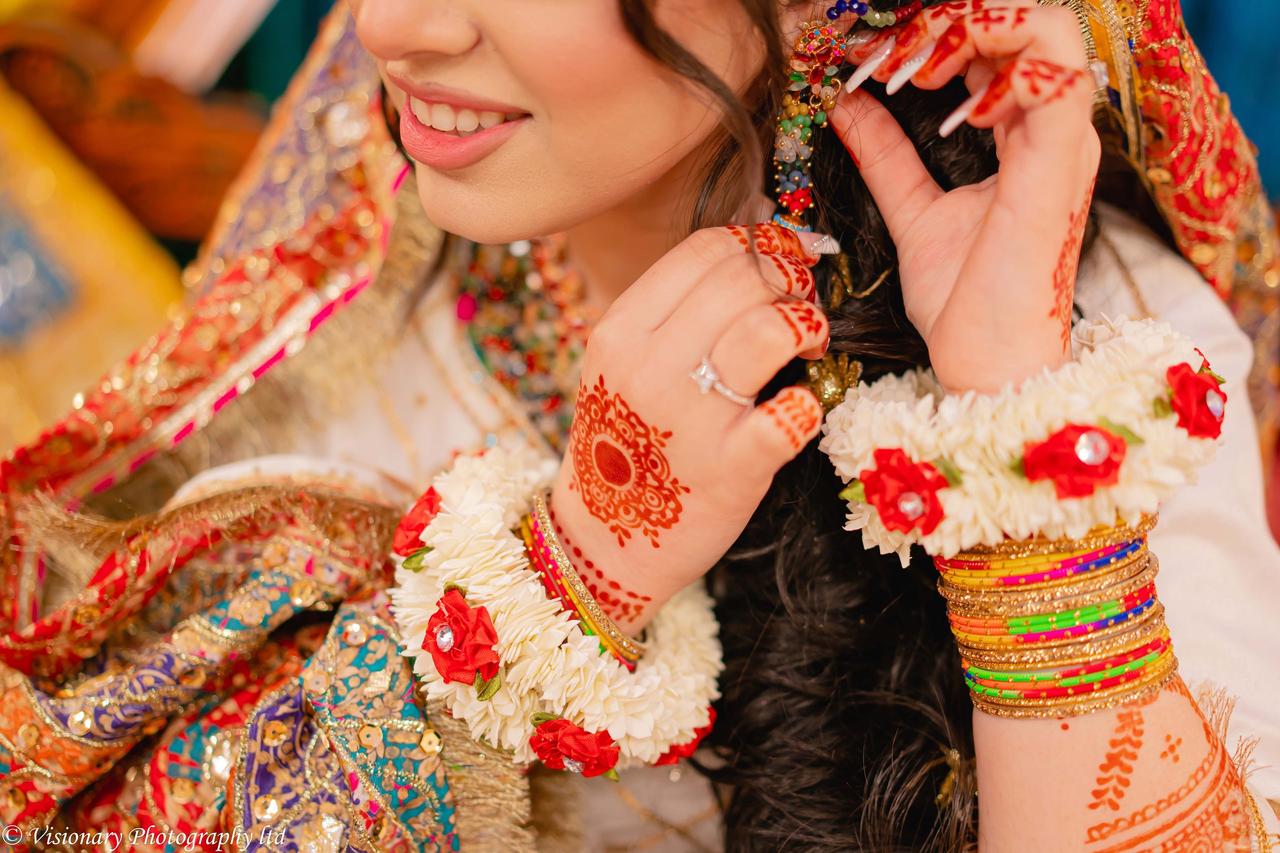
A wedding in Muslim cultures around the world can look very different. Each one can beautifully adapt to the culture and customs of the country where they’re celebrated, resulting in ceremonies that are strongly resemble Islamic weddings and also seem distinctly local.
South Asian Muslim Weddings
In South Asia, Muslim weddings are often grand, multi-day events with colourful gatherings, such as the Mehndi (henna ceremony), which bring a joyous start to the festivities. Brides wear richly embroidered outfits like lehenga or saree, with henna-dyed hands symbolising joy and blessing.
Middle Eastern Muslim Weddings
In the Middle East, Muslim Weddings tend to emphasise the Nikah (marriage contract) ceremony, with grand yet minimalist touches, and traditional music or poetry may play a key role in the proceedings. The attire often includes flowing, elegant Muslim wedding dresses and wedding guest dresses, and decor incorporates delicate golds and silvers.
South East Asian Muslim Weddings
In Southeast Asia, traditional Muslim marriages are often intimate yet festive affairs, with customs unique to the region, such as the Indonesian akad nikah ceremony. Traditional attire here is influenced by local textiles, such as silk and batik, combining Islamic wedding values with local style.
African Muslim Weddings
In African countries, Muslim weddings vary dramatically. North African weddings often embrace bold colours and cultural dances, while West African Muslim weddings may see brides dressed in vibrant wraps or kaftans adorned with intricate jewellery. Family blessings and community feasts are integral to these celebrations, honouring both Islamic and local traditions.
Western Muslim Weddings
Even within Western countries, Muslim weddings bring a fusion of tradition and contemporary style, often blending elements from a couple’s heritage with local customs. While the core religious elements of a Muslim wedding remain constant - the Nikah and prayers - their expression beautifully varies, making traditional Muslim marriages both diverse and universally rooted in shared values.
What Happens at a Muslim Wedding?
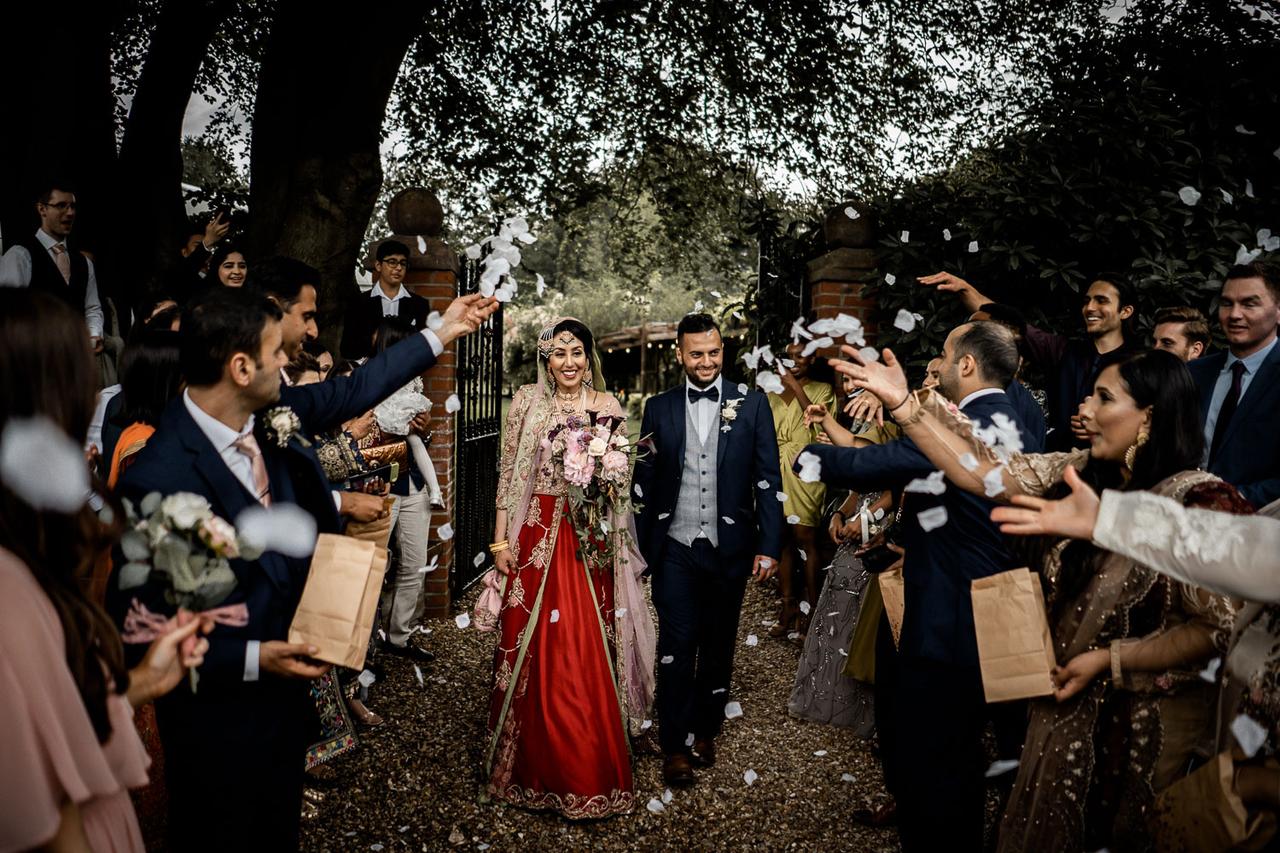
The day typically begins with the Nikah ceremony, the central and most sacred part of the wedding, where the couple formalises their union in the presence of an Imam or religious figure.
During this, the bride and groom consent to the marriage contract, which is witnessed by family and friends.
After the Nikah, prayers and blessings are shared, and the guests might join in a meal or light refreshments.
Some Muslim weddings also include a Walima celebration - hosted by the groom’s family - often as a Muslim wedding congratulations evening event that welcomes the bride into the groom’s family. This part of the day tends to be more festive, with a reception atmosphere where guests share food, music, and dancing, blending the solemnity of the vows with joyful celebration.
Regional customs may add extra ceremonies, such as a Mehndi party before the wedding day, and Istikhara (a prayer for guidance), but the essential flow revolves around the Nikah and Walima, embracing both religious devotion and a warm gathering of loved ones.
Muslim Wedding Traditions: An Expert's Advice
Muslim wedding are rich in tradition and rituals, so we asked Asian wedding planner, Rohita Pabla, some of the most popular questions about Muslim weddings. Here's what she had to say.
What to Wear to a Muslim Wedding?
"Attire at a Muslim wedding is traditionally elegant and modest", Rohita explains, "with choices that respect both religious and cultural customs.
"Women often wear beautiful dresses, usually in rich colors, and often add a scarf or shawl to cover their shoulders. Men may wear traditional outfits, such as a sherwani or a suit, and it’s common to see them dressed in colours that compliment the bride’s Muslim wedding dress.
"Some Muslim weddings may have specific colour themes or dress codes, so it’s wise to confirm any preferences with the couple beforehand."
Do Muslim Couples Wear Wedding Rings?
Rohita says, "In many Muslim communities, wedding rings are an option rather than a religious requirement, and they’re chosen more for cultural or personal reasons.
"Some couples opt for rings to symbolise their union, while others may decide to skip this custom.
"When rings are exchanged, they’re often understated bands, though preferences can vary widely across different families and cultures. It’s a beautiful way for some couples to carry a physical reminder of their vows, while others cherish the spiritual bond they’ve formed."
What is a Nikkah?
"The Nikkah is the central religious ceremony in a Muslim wedding", Rohita explains, "where the couple officially consents to marry in front of witnesses.
"This simple yet profound ceremony is usually led by an imam and includes the signing of a marriage contract, outlining the terms and agreements between the couple.
"For many Muslim couples, the Nikkah is a cherished spiritual union, celebrated with family and friends. It serves as the foundation of their marriage and is often followed by additional events, such as a walima - or the "reception" - depending on the family’s traditions."
Muslim Weddings: Things to Remember

Before you go, here are a few things to remember if you're attending or planning a Muslim wedding. From tips in Muslim wedding etiquette to deciding on a gift, don't forget these final details before the big day.
What Type of Food is Served at a Muslim Wedding?
Food at a Muslim wedding is as varied as the cultures that celebrate it, offering a feast that’s both festive and meaningful.
Dishes often include halal options like biryani, kebabs, and curries, reflecting regional tastes. South Asian weddings might feature aromatic rice dishes, spiced meats, and an array of side dishes, while Middle Eastern weddings may serve lamb or chicken with fragrant rice and mezze platters.
Desserts are also significant, with treats like baklava, gulab jamun, or traditional pastries, adding a sweet note to the joyous occasion.
Should You Bring a Gift to a Muslim Wedding?
Bringing a gift to a Muslim wedding is generally appropriate and appreciated. Monetary gifts are common, as they symbolise support for the couple’s new life together, but a thoughtful gift for the home can also be suitable.
But remember to avoid alcohol or items that don’t align with Islamic values. In a Muslim wedding, congratulations can be given with gifts that reflect respect for the couple’s culture or faith, like decorative items, kitchenware, or even gift cards.
Always check with family members or the invitation for specific guidance on gifts.
Is It Appropriate to Take Pictures at a Muslim Wedding?
Photography etiquette at a Muslim wedding varies, so it’s essential to be mindful of the couple’s preferences.
Many Muslim weddings have designated times and places for photos, especially if the ceremony includes a religious setting or private moments.
Some families may prefer restricted photography, particularly during the Nikah ceremony, to keep the experience intimate. Always check with the couple or family if photography is allowed and follow any requests on the invitation or from the wedding coordinator to ensure you’re respecting their traditions.
If you're about to start planning an Asian wedding, check out our top tips for stress-free Asian wedding planning!

